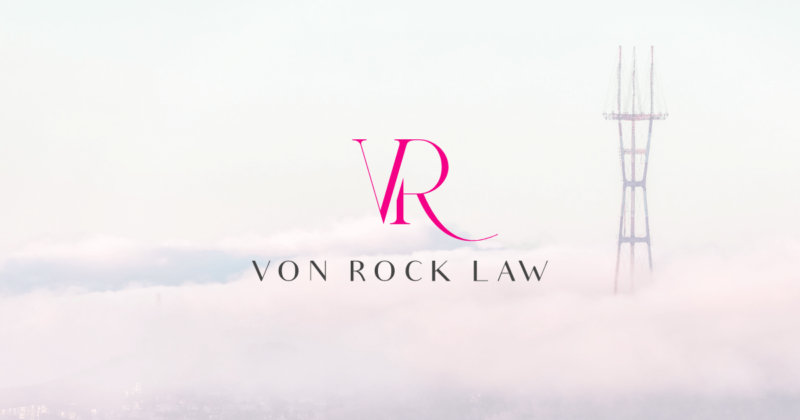According to the American College of Trust and Estate Counsel (ACTEC), a beneficiary deed, also referred to as a transfer on death (TOD) deed, is a unique type of deed used to shift ownership of property upon the death of the grantor outside of probate. This type of deed is often used as an alternative to a Last Will and Testament. If you need further information about beneficiary deeds or would like to discuss creating one, consider contacting an experienced California estate planning lawyer at Von Rock Law by calling (866) 720-0195 to schedule a free consultation.
The Purpose of a Beneficiary Deed
The primary purpose of a beneficiary deed is to transfer real estate to beneficiaries in the future and keep property out of probate. While the process may seem similar to a Will, the two have some major differences. For instance, if you leave property in a Will, the property will have to go through probate, which can take months to resolve. This also means the beneficiary will not have immediate access to the property. Fortunately, a beneficiary deed can avoid these issues.
Another benefit of a beneficiary deed is it lets individuals retain an interest in their property while they are alive. The original owner can continue using the property throughout their life, including making changes to it in any way they want.
What Are the Disadvantages of a TOD Deed?
While a transfer on death deed is a good option to avoid probate and transfer property quickly, there are various disadvantages to using this type of deed:
- Taxes On the Property: The property that is transferred through a TOD deed could be taxed.
- Medicaid Eligibility: The ability to obtain Medicaid could be affected if you create a TOD deed.
- Transfer Issues: If the beneficiary passes away before the grantor, the property is not part of their estate and the lapse of beneficiary must be addressed.
- Asset Protection: The beneficiary obtains this property without protection from divorces, lawsuits, and creditors.
- Issues with the Beneficiary: This deed does nothing to protect the property if beneficiaries are irresponsible with money.
- Incapacity Issues: A TOD deed does not address or protect against disability or incapacity.
- Not Effective for Multiple Beneficiaries: TOD deeds cannot have multiple beneficiaries with unequal shares or contingent beneficiaries.
- Lack of Privacy: A transfer on death deed is publicly available information, meaning that anyone can know what you plan on doing with your property.
- Debts Transfer: According to the Sacramento County Public Law Library & Civil Self Help Center, a beneficiary who inherits property through a TOD deed can be held liable for all the deceased’s debts.
In California, transfer on death deed law can also be quite complicated. Misunderstandings related to these complexities can cause mistakes that can invalidate beneficiary deeds, leaving family members or beneficiaries without the property they had been promised. For these reasons, if you are thinking about a TOD deed, consider discussing the process with a knowledgeable California estate planning attorney to determine if it is the right option for you.
What Is the Beneficiary’s Role in a Beneficiary Deed?
Until the current owner of a property passes away, the beneficiary has no ownership interest in the property with a beneficiary deed. Instead, the property owner will retain control of their property while they are alive, and the beneficiary will only gain control over the assets once the original owner passes away.
What Do the Terms Beneficiary and TOD Mean?
A beneficiary is defined as someone who is named to receive something of value, while a transfer on death is an instrument that helps transfer ownership of certain assets and accounts to someone else. However, to better understand these differences, consider discussing these issues with an experienced California estate planning lawyer at Von Rock Law. These knowledgeable attorneys can answer your questions regarding beneficiary deeds and provide you with more details about what a transfer on death deed can mean for you and your loved ones.
What Is the Difference Between POD and TOD Accounts?
A POD account stands for payable on death account, and it is set up to automatically transfer accounts when the owner of these accounts passes away. Generally, POD accounts are used with bank accounts, including Certificates of Deposit, savings, and checking. In comparison, TOD accounts are used with stocks, bonds, brokerage accounts, and other investments.
However, both of these accounts are used to keep monetary assets out of probate and pay the beneficiary directly. Periodically reviewing the beneficiaries of your accounts and assets can be helpful to ensure your accounts pass to those you want to have them.
Who May Want to Create a Transfer on Death Deed?
While a transfer on death deed can help many different individuals plan for the future. In general, the individuals that may benefit the most from this deed include the following:
- Unmarried owners
- Property owners who own their property free and clear and have no debt
- Property owners who plan to designate one individual as the death beneficiary
- A TA beneficiary who is a suitable candidate for an outright distribution of real property (i.e., they are not a minor, have no judgments against them, have no pending litigation, are not at risk of divorce, and are not drawing government benefits)
If you are considering creating a transfer on death deed, contact a skilled California estate planning attorney and review your options. These lawyers can help you figure out if creating this deed would work for your circumstances.
Contact Von Rock Law Today and Figure Out If a Beneficiary Deed Is Right for You
If you are thinking about leaving property to a loved one or would like your inheritance to go to a single person, a beneficiary deed may help you find the solution to your estate planning needs. However, to know more about this process, what it entails, and whether this deed is something you should pursue, contact a knowledgeable California estate planning attorney from Von Rock Law today or call us at (866) 720-0195 to schedule a free consultation and find out how our legal team can help you plan for the future.




